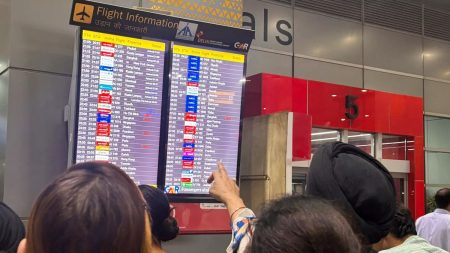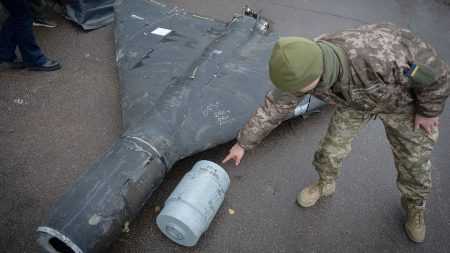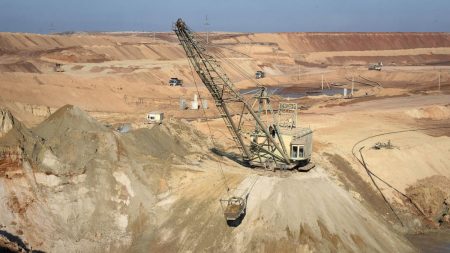The catastrophic Tempi rail disaster, which occurred just before midnight on February 28, 2023, has ignited widespread outrage and protests across Greece. The head-on collision between a freight train and a passenger train on the Athens-Thessaloniki line claimed the lives of 57 people, marking the nation’s worst rail tragedy. The incident has sparked accusations of government negligence and corruption, fueled by a recently released audio recording suggesting that a significant number of victims perished in a post-crash fire, a detail previously undisclosed. The revelation has intensified public anger, casting a long shadow over the government’s handling of the disaster and its subsequent investigation.
The release of the chilling audio, in which desperate cries for help and the phrase “I have no oxygen” can be heard, has served as a rallying cry for tens of thousands of protesters. Demonstrations erupted in Athens and over 100 other cities across Greece, with the Athens protest being the largest the country has seen in over a decade. Protestors carried banners emblazoned with the haunting phrase “I have no oxygen,” demanding justice for the victims and accountability from those responsible for the tragedy. The protests reflect the deep-seated frustration and anger at what many perceive as a systemic failure in the Greek rail system, years of neglect compounded by a decade-long financial crisis.
The disaster has exposed long-standing concerns about the safety and maintenance of Greece’s rail network. Critics argue that years of austerity measures and underinvestment have left the system vulnerable to accidents. The government’s response to the disaster has further fueled public discontent. The ongoing judicial investigation, marred by delays and a lack of transparency, has been met with skepticism and accusations of a cover-up. Families of the victims have been particularly vocal in their criticism, accusing the government of withholding crucial information and downplaying the extent of the tragedy. The release of the audio recording has only intensified their demands for a thorough and impartial investigation.
The government, headed by Kyriakos Mitsotakis, has pledged to reform the rail network and improve safety measures. However, these promises have been met with skepticism by many, particularly given the government’s initial downplaying of the disaster and the slow pace of the investigation. The European Commission has also expressed concerns about the slow progress of reforms, further adding pressure on the Greek government to take decisive action. The re-election of Mitsotakis’s center-right government three months after the crash, despite the ongoing controversy surrounding the disaster, underscores the complex political landscape in which these events are unfolding.
The victims’ families have issued a powerful statement alleging that the train was carrying an “illegal chemical cargo” which contributed to the devastating post-crash fire. They assert that the Tempi tragedy was not merely an accident, but a “crime born of indifference, irresponsibility, and corruption.” This accusation has further fueled public anger and demands for accountability, raising questions about the regulatory oversight of the rail system and the potential role of corruption in contributing to the disaster. The families’ statement highlights the perception that the disaster was not an isolated incident but a consequence of systemic failures and a culture of impunity.
While the majority of the protests have been peaceful, tensions have flared in some instances, leading to clashes between demonstrators and police. Reports indicate that police used tear gas to disperse crowds, and at least one protester was arrested. The presence of hooded individuals who allegedly attacked police with Molotov cocktails and stones further complicates the narrative of the protests, raising concerns about potential outside agitators and the risk of further violence. The ongoing investigation, the government’s response, and the public outcry following the Tempi rail disaster underscore the deep societal impact of this tragedy and the urgent need for systemic change within Greece’s rail network.










